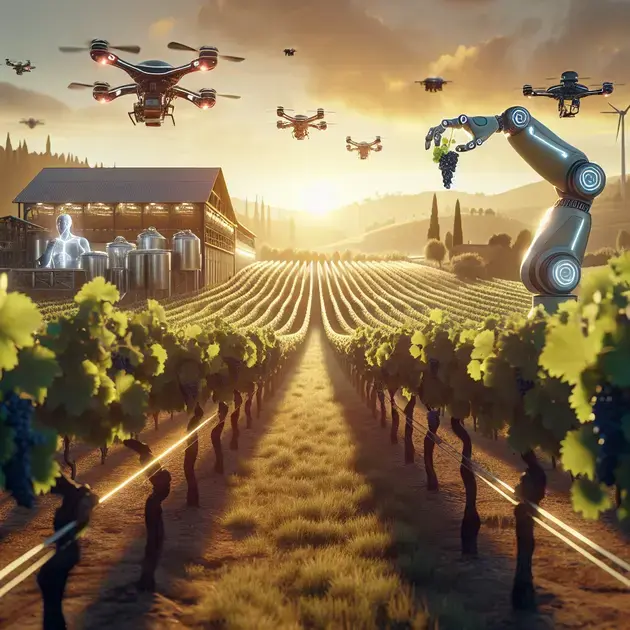Are you ready to dive into the exciting world of artificial intelligence? In this comprehensive course guide, we will take you through everything you need to know about mastering artificial intelligence. From the basics to advanced concepts, this guide will equip you with the knowledge to excel in this cutting-edge field.
Artificial intelligence is revolutionizing industries across the board, from healthcare to finance to entertainment. With the rapid advancements in AI technology, staying up-to-date with the latest trends and techniques is crucial for anyone looking to pursue a career in this field. This complete course guide is your roadmap to becoming an AI expert and staying ahead of the curve.

Exploring the Fundamentals of Artificial Intelligence
When diving into the fundamentals of Artificial Intelligence (AI), it is essential to start by understanding the basic concepts and principles that govern this field. One excellent resource for beginners is the online platform called “Coursera.” Coursera offers a variety of courses related to AI, including introductory courses that cover the fundamental concepts of AI, machine learning, and deep learning. By enrolling in these courses, students can gain a solid foundation in AI and understand key concepts such as neural networks, algorithm optimization, and data preprocessing.
Step-by-Step Guide:
- Visit the Coursera website at www.coursera.org
- Search for “Artificial Intelligence Fundamentals” in the search bar
- Enroll in the course that best fits your learning goals
- Follow the lectures and complete the assignments to enhance your understanding of AI basics
- Engage with the online community and discuss key concepts with peers to deepen your knowledge
Advanced Strategies and Techniques in AI Mastery
Once you have grasped the fundamentals of AI, it is time to explore advanced strategies and techniques to master this dynamic field. One valuable resource for advanced AI learning is “TensorFlow,” an open-source platform developed by Google for machine learning and deep learning applications. TensorFlow provides a wide range of tools and resources for building sophisticated AI models, including neural networks, natural language processing, and image recognition models.
Step-by-Step Guide:
- Visit the TensorFlow website at www.tensorflow.org
- Explore the “Learn” section to access tutorials and guides on advanced AI techniques
- Download the TensorFlow framework and set up your development environment
- Experiment with building custom AI models using TensorFlow’s extensive libraries
- Join TensorFlow community forums to seek advice, share insights, and collaborate with other AI enthusiasts
Staying Ahead in the Ever-Evolving Field of Artificial Intelligence
As AI continues to evolve rapidly, staying ahead of the curve is crucial for professionals in this field. One effective way to stay updated on the latest trends and advancements in AI is to follow reputable AI news sources such as “Towards Data Science,” a popular publication on Medium. Towards Data Science provides insightful articles, tutorials, and case studies on cutting-edge AI technologies, industry trends, and best practices in AI development.
Step-by-Step Guide:
- Visit the Towards Data Science publication on Medium at towardsdatascience.com
- Follow Towards Data Science to receive regular updates on AI news and developments
- Read articles on emerging AI technologies, breakthroughs, and applications in various industries
- Engage with the AI community through comments and discussions on Towards Data Science articles
- Stay informed about AI conferences, webinars, and workshops to network with industry experts and enhance your AI knowledge

Unlocking the Potential of Machine Learning
Machine learning is a branch of artificial intelligence that focuses on the development of algorithms and models that enable computers to learn and make decisions based on data. The potential of machine learning in various industries is vast, with applications ranging from predicting consumer behavior to optimizing supply chain management. One area where machine learning has shown significant promise is in the wine industry, where it can be applied to analyze data and identify patterns in order to determine the factors that contribute to the production of the most expensive wines in the world.
By leveraging machine learning algorithms, wine producers can process vast amounts of data related to soil composition, weather conditions, grape varieties, and production techniques. This data can then be used to train models that can predict the quality of a wine based on these factors, ultimately leading to the production of high-value wines. Unlocking the potential of machine learning in the wine industry can revolutionize the way wines are produced, allowing for the creation of unique and highly sought-after vintages.
Furthermore, machine learning can also be used in the wine market to analyze trends and predict which wines are likely to increase in value over time. By identifying patterns in consumer preferences and market dynamics, machine learning algorithms can assist investors and collectors in making informed decisions when purchasing wines. This application of machine learning in the wine market has the potential to transform the investment landscape, enabling individuals to capitalize on the increasing value of the most expensive wines in the world.
In conclusion, unlocking the potential of machine learning in the wine industry offers a wealth of opportunities for both producers and consumers. By harnessing the power of data and algorithms, wine producers can optimize their production processes and create exceptional wines that command high prices in the market. Similarly, investors and collectors can benefit from the insights provided by machine learning models to make strategic decisions that maximize the value of their wine portfolios. Overall, machine learning has the potential to revolutionize the wine industry and unlock new possibilities for the production and appreciation of the most expensive wines in the world.
Achieving Success through Neural Networks
Neural networks are a key component of artificial intelligence that mimic the structure and function of the human brain to process complex data and make intelligent decisions. In the context of the wine industry, neural networks can be used to analyze diverse datasets and extract valuable insights that can lead to the production of the most expensive wines in the world. By training neural network models on historical data related to wine production, quality, and market trends, wine producers can leverage the power of artificial intelligence to optimize their processes and achieve success in creating high-value wines.
One of the key advantages of neural networks in the wine industry is their ability to learn from experience and adapt to changing conditions. By continuously analyzing new data and refining their algorithms, neural network models can improve their accuracy and predictive capabilities over time. This iterative process of learning and adaptation is crucial for achieving success in the production of premium wines, as it enables producers to stay ahead of market trends and consumer preferences.
Additionally, neural networks can also be applied in the wine market to forecast the future value of wines based on various factors such as vintage, producer reputation, and critic reviews. By processing large volumes of data and identifying patterns that influence wine prices, neural network models can provide valuable insights to investors and collectors seeking to maximize their returns. This predictive capability of neural networks offers a competitive advantage to individuals looking to invest in the most expensive wines in the world.
In summary, achieving success through neural networks in the wine industry requires a deep understanding of both data analytics and artificial intelligence. By harnessing the capabilities of neural networks to analyze complex datasets and predict market trends, wine producers and investors can unlock new opportunities for creating and investing in high-value wines. Neural networks hold the potential to revolutionize the wine industry by enabling the production of exceptional wines and facilitating smart investment decisions in the ever-evolving wine market.
Innovation and Breakthroughs in AI Applications
Artificial intelligence (AI) continues to drive innovation and breakthroughs across various industries, including the wine sector. The development of AI applications in the wine industry has opened up new possibilities for leveraging data and technology to enhance production processes and elevate the quality of wines. With AI algorithms becoming increasingly sophisticated, wine producers can now explore innovative solutions that optimize vineyard management, grape harvesting, and wine fermentation to produce some of the most expensive wines in the world.
One of the key areas of innovation in AI applications for the wine industry is the development of predictive analytics models that can forecast wine quality and market demand. By analyzing historical data and identifying patterns in factors such as temperature, humidity, and soil composition, AI algorithms can predict the optimal conditions for grape cultivation and winemaking. This predictive capability enables producers to make informed decisions that improve the quality and value of their wines, ultimately leading to the production of premium vintages.
Furthermore, AI-powered systems are also revolutionizing the wine tasting experience for consumers, allowing them to access personalized recommendations based on their preferences and taste profiles. By leveraging machine learning algorithms, wine apps and platforms can analyze consumer feedback and behavior to offer tailored suggestions for wines that match individual preferences. This personalized approach to wine selection enhances the overall consumer experience and fosters a deeper appreciation for the craftsmanship behind the most expensive wines in the world.
In conclusion, the innovation and breakthroughs in AI applications for the wine industry represent a paradigm shift in how wines are produced, marketed, and consumed. By embracing AI technologies, wine producers can unlock new levels of creativity and efficiency in their operations, leading to the development of exceptional wines that capture the essence of craftsmanship and quality. As AI continues to evolve and advance, the possibilities for innovation in the wine industry are endless, promising a future where the most expensive wines in the world are not just prized for their value, but also for the ingenuity and vision behind their creation.
Conclusion
Unlocking the potential of machine learning in the wine industry presents a multitude of opportunities for both producers and consumers. By harnessing the power of data and algorithms, wine producers can optimize their production processes, leading to the creation of exceptional wines that command high prices in the market. This utilization of machine learning not only revolutionizes the way wines are produced but also allows for the development of unique and highly sought-after vintages. Moreover, investors and collectors can benefit from machine learning’s insights, making strategic decisions to maximize the value of their wine portfolios.
Achieving success through neural networks in the wine industry requires a profound understanding of data analytics and artificial intelligence. By leveraging neural networks to analyze complex datasets and predict market trends, producers and investors can unlock new avenues for creating and investing in high-value wines. These networks have the potential to transform the wine industry by enabling the production of exceptional wines and facilitating strategic investment decisions in the ever-evolving wine market.
In conclusion, the innovation and breakthroughs in AI applications within the wine industry signify a paradigm shift in how wines are produced, marketed, and consumed. Embracing AI technologies enables wine producers to unlock new levels of creativity and efficiency in their operations, ultimately leading to the development of exceptional wines that embody craftsmanship and quality. As AI continues to evolve, the wine industry stands at the brink of endless possibilities for innovation, promising a future where the most expensive wines in the world are revered not only for their value but also for the ingenious vision underlying their creation.



